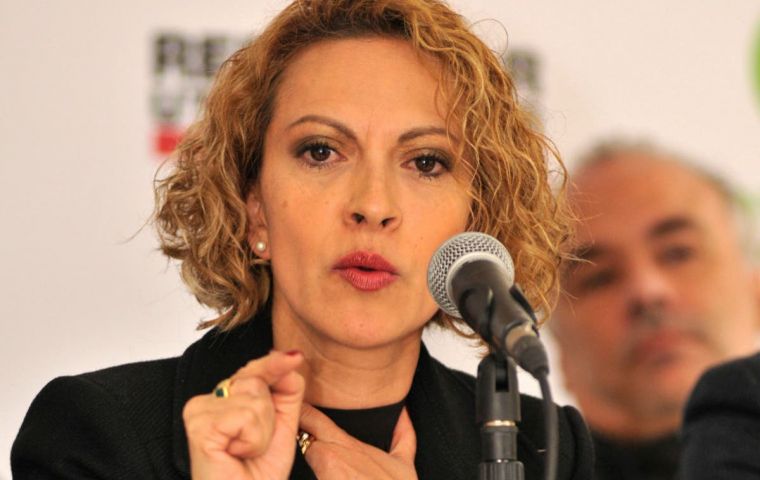MercoPress. South Atlantic News Agency
IACHR finds Colombia guilty for what happened to a reporter
 The state of Colombia had neglected the well-being of a journalist
The state of Colombia had neglected the well-being of a journalist Colombia's President Iván Duque has announced he would abide by the IACHR ruling against his country in the Jineth Bedoya case in which the Court also ordered the creation of a centre for women victims of sexual violence.
The Inter-American Court of Human Rights (IACHR) has ruled in favour of the current sub-editor of the newspaper El Tiempo, 21 years after she was attacked and sexually assaulted at a Bogotá prison.
The Court found the Colombian State responsible not only for the attack Bedoya suffered inside the prison on May 25, 2000 but for the subsequent kidnapping in which she was sexually, physically and verbally assaulted by paramilitaries.
“The Inter-American Court declared the international responsibility of the State for the violation of the rights to personal integrity, honour and dignity, freedom of thought and expression, and judicial guarantees to the detriment of the journalist due to the lack of investigations into the threats she received with the character before and after the aforementioned events of May 25, 2000,″ reads the summary of the sentence published Monday.
Faced with the IACHR's decision, President Iván Duque announced from his Twitter account that he would abide by the ruling. “As president of Colombians, I will always condemn any violent act against women and journalists. The case of Jineth Bedoya can never be repeated. This sentence should serve as a guide in the actions to be implemented to prevent something similar from happening again,” said Duque.
He also welcomed the Court's order to create a memory and dignity centre for women victims of sexual violence in the context of armed conflicts and investigative journalism.
Bedoya's fight in international courts is related to two attacks against her physical and mental integrity that she suffered in her work as a journalist. The first, on May 25, 2000, was carried out by paramilitaries to stop her coverage of the situation of violence at the La Modelo prison, where cases of dismemberment and disappearance had been documented and Bedoya, who at that time worked for the newspaper El Espectador, went to investigate the matter.
The second case occurred in 2005 when she was already working for El Tiempo. The journalist was held by a Revolutionary Armed Forces of Colombia (FARC) group which released her after pressure from the newspaper and civil society.
Both situations occurred even though Bedoya had asked the State for protection due to threats against her. The response she received was that she “was not at risk and she could not receive a security scheme.”
Taking this into account, and the other evidence provided by the journalist, the Inter-American Court made the decision unanimously.
In addition to holding the Colombian State responsible for what happened to Bedoya in 2000, the judges declared “violation of the right to personal integrity, honour and dignity, judicial guarantees and judicial protection” to the detriment of Luz Nelly Lima, Bedoya's mother.




Top Comments
Disclaimer & comment rulesCommenting for this story is now closed.
If you have a Facebook account, become a fan and comment on our Facebook Page!